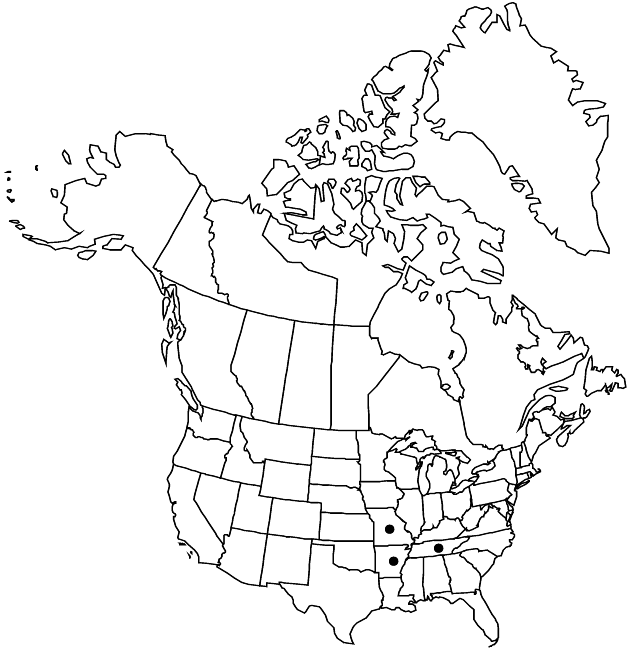Solidago gattingeri
in A. Gray et al., Syn. Fl. N. Amer. 1(2): 156. 1884.
Plants 50–100 cm; caudices branched. Stems 1–5+, ascending to erect, slender, essentially glabrous; axillary clusters of small leaves present in distal leaf axils. Leaves: basal often withering by flowering, tapering to petiolar bases, blades oblanceolate, largest blades 80–170 × 10–20 mm, margins entire or slightly toothed, ± strongly 3-nerved, apices acute; mid and distal cauline ascending to erect, blades linear-lanceolate, greatly reduced, becoming bractlike in arrays, less prominently or scarcely 3-nerved, glabrous. Heads 35–140, in paniculiform arrays, often about as broad as long, branches recurved-secund, often elongate. Peduncles 1–3(–5) mm; bracts linear-lanceolate, 1–3 mm, glabrous. Involucres campanulate, 3–5 mm. Phyllaries in 3 series, strongly unequal, broadly lanceolate, acute, glabrous. Ray florets 5–8; laminae 1–2 × 0.5–0.75 mm. Disc florets 3–9; corollas 3–4 mm, lobes 0.5–0.75 mm. Cypselae (obconic) 1.5–2 mm, glabrous; pappi 1.5–2 mm. 2n = 18.
Phenology: Flowering Aug–Sep.
Habitat: Cedar barrens, limestone ledges and glades
Elevation: 200–400 m
Distribution

Ark., Mo., Tenn.
Discussion
A. Cronquist (1980) suggested that Solidago gattingeri possibly occurs in Texas; no specimens were seen from that state.
Selected References
None.